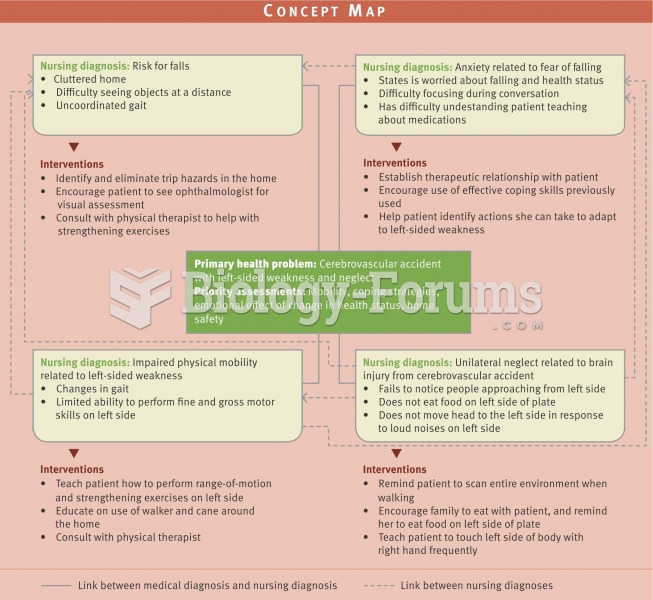|
|
|
Drying your hands with a paper towel will reduce the bacterial count on your hands by 45–60%.
More than 34,000 trademarked medication names and more than 10,000 generic medication names are in use in the United States.
Egg cells are about the size of a grain of sand. They are formed inside of a female's ovaries before she is even born.
In most cases, kidneys can recover from almost complete loss of function, such as in acute kidney (renal) failure.
GI conditions that will keep you out of the U.S. armed services include ulcers, varices, fistulas, esophagitis, gastritis, congenital abnormalities, inflammatory bowel disease, enteritis, colitis, proctitis, duodenal diverticula, malabsorption syndromes, hepatitis, cirrhosis, cysts, abscesses, pancreatitis, polyps, certain hemorrhoids, splenomegaly, hernias, recent abdominal surgery, GI bypass or stomach stapling, and artificial GI openings.







